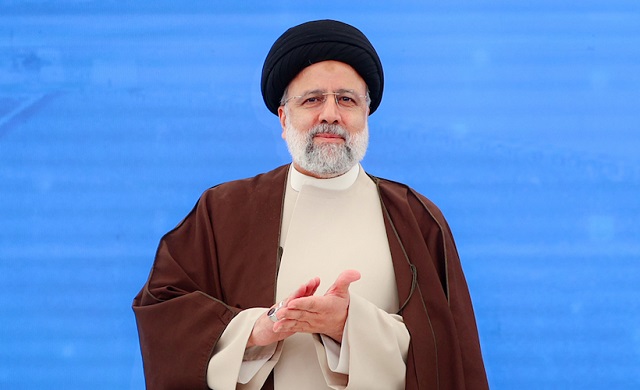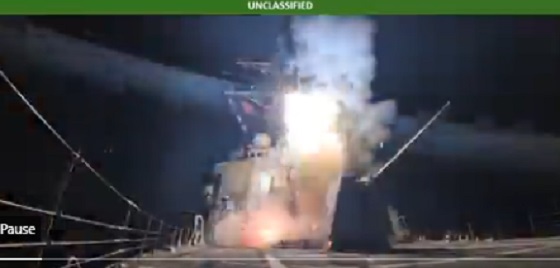International
Iran’s President Ebrahim Raisi, who oversaw mass executions, dies in helicopter crash

Iranian President Ebrahim Raisi
From LifeSiteNews
By Matt Lamb
Ebrahim Raisi, a Muslim cleric expected to eventually replace Iran’s Ayatollah Ali Khamenei, oversaw the execution of thousands of dissidents and supported Hamas in its terrorist attacks.
The president of Iran died in a helicopter crash Sunday evening.
Ebrahim Raisi was a Muslim cleric who claimed his family descended from Muhammed, the founder of Islam. He died near Azerbaijan along with other officials who were visiting the country for an event celebrating a new dam, according to Reuters.
Raisi was a Shiite leader who served on the 1988 commission that sentenced thousands of political prisoners to death. He was expected to eventually replace the Ayatollah Ali Khamenei.
“Human rights organizations estimate that between 4,500 and 5,000 men, women and children were killed in the summer of 1988 in prisons across Iran,” according to Amnesty International’s summary. “The pattern of political executions changed dramatically from piecemeal reports of executions to a massive wave of killings that took place over several months.”
“The true number of dead, however, is still unknown as the executions were carried out in secret. In fact, many relatives were never told about the killings or where their loved ones had been buried,” Amnesty International reported.
In September 2022, his government killed hundreds of protesters against clerical rule, according to the BBC.
“The ‘Woman, Life, Freedom’ movement was sparked the death in custody of Mahsa Amini, a young woman who had been detained by morality police in Tehran for allegedly wearing her hijab ‘improperly,” the BBC reported. “Authorities denied she was mistreated, but a UN fact-finding mission found she was ‘subjected to physical violence that led to her death.’”
Raisi oversaw Iran’s further enrichment of uranium and attacks on Israel, according to the Associated Press. He was “a hard-line protégé of the country’s supreme leader who helped oversee the mass executions of thousands in 1988 and later led the country as it enriched uranium near weapons-grade levels and launched a major drone-and-missile attack on Israel,” according to the AP’s article on his death.
“An Israeli official told Reuters it was not involved in the crash,” the news outlet reported. “It wasn’t us.”
Iran also allied itself with Russia and supplied it with weapons to fight Ukraine; Putin called Raisi “a true friend of Russia,” in his condolence message, according to Reuters.
The terrorist group Hamas also mourned Raisi’s death and that of Foreign Minister Hossein Amirabdollahian, who also died in the plane crash. Hamas thanked them for supporting them in the terrorist attacks against Israel on October 7, 2023, and the ensuing war.
Daily Caller
US Halts Construction of Five Offshore Wind Projects Due To National Security


From the Daily Caller News Foundation
Interior Secretary Doug Burgum leveled the Trump administration’s latest broadside at the struggling U.S. offshore wind industry on Monday, ordering an immediate suspension of activities at the five big wind projects currently in development.
“Today we’re sending notifications to the five large offshore wind projects that are under construction that their leases will be suspended due to national security concerns,” Burgum told Fox Business host Maria Bartiromo. “During this time of suspension, we’ll work with the companies to try to find a mitigation. But we completed the work that President Trump has asked us to do. The Department of War has come back conclusively that the issues related to these large offshore wind programs have created radar interference that creates a genuine risk for the U.S.”
Predictably, reaction to Burgum’s order was immediate, with opponents of offshore wind praising the move, and industry supporters slamming it. In Semafor’s energy-related newsletter on Tuesday, energy and climate editor Tim McDowell quotes an unnamed ex-Energy Department official as claiming, “the Pentagon and intelligence services, which are normally sensitive to even extremely low-probability risks, never flagged this as a concern previously.” (RELATED: Trump Admin Orders Offshore Wind Farm Pauses Over ‘National Security Risks’)
Yet, a simple 30-second Google search finds a wealth of articles going back to as early as October 2014 discussing ways to mitigate the long-ago identified issue of interference with air defense radars by these enormous windmills, some of which are taller than the Eiffel Tower. It is a simple fact that the issue was repeatedly raised during the Biden Administration’s mad rush to speed these giant windmill operations into the construction phase by cutting corners in the permitting process.
In May, 2024, the Bureau of Ocean Energy Management’s (BOEM) own analysis related to the Atlantic Shores South project contains a detailed discussion of the potential impacts and suggests multiple ways to mitigate for them. An Oct. 29, 2024 memo of understanding between BOEM and the Biden Department of Defense calls for increased collaboration between the two departments as a response to concerns from members of Congress and others related to these very long-known potential impacts.
The Georgia Tech Research Institute published a study dated June 6, 2022 detailing “Radar Impacts, Potential Mitigation, from Offshore Wind Turbines.” That study was in fact commissioned by the National Academies of Sciences, Engineering, and Medicine (NASEM), a private non-profit that functions as an advisory group to the federal government.
Oh.
A report published in February 2024 by International Defense Security & Technology, Inc. describes the known issues thusly:
“Wind turbines can create clutter on radar screens in a number of ways. First, the metal towers and blades of wind turbines can reflect radar signals. This can create false returns on radar screens, which can make it difficult to detect and track real targets.
“Second, the rotating blades of wind turbines can create a Doppler effect on radar signals. This can cause real targets to appear to be moving at different speeds than they actually are. This can also make it difficult to track real targets.”
The simple Google search I conducted returns hundreds of articles dating all the way back to 2006 related to this long-known yet unresolved issue that could present a very real threat to national security. The fact that the Biden administration, in its religious zeal to speed these enormous offshore industrial projects into the construction phase, chose to downplay and ignore this threat in no way obligates his successor in office to commit the same dereliction of duty.
Some wind proponents are cynically raising concerns that a future Democratic administration could use this example as justification for cancelling oil and gas projects. It’s as if they’ve all forgotten about the previous four years of the Autopen presidency, which featured Joe Biden’s Day 1 order cancelling the 80% completed Keystone XL pipeline, a year-long moratorium on LNG export permitting, an attempt to set aside more than 200 million acres of the U.S. offshore from future leasing, and too many other destructive moves to detail here.
Again, a simple web search reveals that experts all over the world believe this is a real problem. If so, it needs to be addressed as a matter of national security. Burgum is intent on doing that. All half-baked talking points aside, this really isn’t complicated.
David Blackmon is an energy writer and consultant based in Texas. He spent 40 years in the oil and gas business, where he specialized in public policy and communications.
International
No peace on earth for ISIS: Trump orders Christmas strikes after Christian massacres

President Trump said Christmas night that he ordered U.S. forces to carry out airstrikes in northwest Nigeria, targeting ISIS-linked militants he blamed for a campaign of mass killings against Christians.
In announcing the operation, Trump said the United States delivered “powerful and deadly” blows against terrorists who have been “viciously killing, primarily, innocent Christians,” adding that he had warned them repeatedly that the slaughter would bring consequences. He credited precise U.S. strikes, said his administration would not allow radical Islamic terrorism to take root, and closed with a Christmas message blessing the military while signaling more action if the attacks continue.
.@POTUS “Tonight, at my direction as Commander in Chief, the United States launched a powerful and deadly strike against ISIS Terrorist Scum in Northwest Nigeria, who have been targeting and viciously killing, primarily, innocent Christians, at levels not seen for many years, and… pic.twitter.com/ct7rUW128t
— Department of War 🇺🇸 (@DeptofWar) December 26, 2025
The strike followed weeks of intensifying reports documenting targeted violence against Christian communities across northern and central Nigeria, violence that multiple journalists and religious freedom advocates have described as genocidal in nature.
Islamist factions including Boko Haram and allied jihadist militias have, for more than a decade, carried out coordinated assaults aimed at erasing Christian villages from the Middle Belt and the north. Those attacks have repeatedly spiked around Christian holidays, particularly Christmas and Easter.
During a December 16 briefing attended by reporters and advocates, speakers described the violence as a deliberate campaign of obliteration. Steven Kefas of the Observatory for Religious Freedom in Africa pointed to the timing of the attacks as evidence they are religiously motivated, noting that assaults frequently occur on Sundays and Christmas Eve. If the killings were random criminality, he asked, why are Muslim communities not attacked on Fridays or on the eve of their own celebrations?
Critics say the crisis has been compounded by denials from Abuja. President Bola Tinubu has consistently downplayed the religious nature of the violence, framing it instead as banditry or climate-related conflict, and pushed back on international scrutiny even after Trump designated Nigeria a Country of Particular Concern for religious freedom earlier this fall.
While the Nigerian government later declared a state of emergency and dismissed senior defense officials, watchdog groups report that Christians who survive the attacks — and journalists who document them — continue to face threats and intimidation.
According to Open Doors, Nigerian Christians now endure an average of eight violent attacks every day, a level of brutality critics say the government has long minimized or ignored.
The issue has also drawn attention beyond Washington. In a Christmas Eve message, Benjamin Netanyahu said Israel remains the only Middle Eastern nation where the Christian community is thriving and added that militant displacement and attacks against Christians in Nigeria “must end.”
-

 Alberta2 days ago
Alberta2 days agoOttawa-Alberta agreement may produce oligopoly in the oilsands
-

 Energy2 days ago
Energy2 days agoWestern Canada’s supply chain for Santa Claus
-

 International2 days ago
International2 days ago$2.6 million raised for man who wrestled shotgun from Bondi Beach terrorist
-

 Energy2 days ago
Energy2 days agoThe Top News Stories That Shaped Canadian Energy in 2025 and Will Continue to Shape Canadian Energy in 2026
-

 armed forces23 hours ago
armed forces23 hours agoRemembering Afghanistan and the sacrifices of our military families
-

 Opinion23 hours ago
Opinion23 hours agoPope Leo XIV’s Christmas night homily
-

 Fraser Institute22 hours ago
Fraser Institute22 hours agoHow to talk about housing at the holiday dinner table
-

 Frontier Centre for Public Policy22 hours ago
Frontier Centre for Public Policy22 hours agoTent Cities Were Rare Five Years Ago. Now They’re Everywhere









